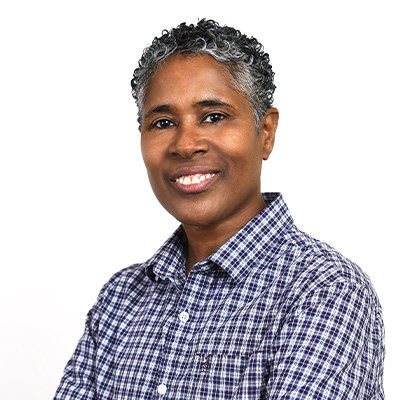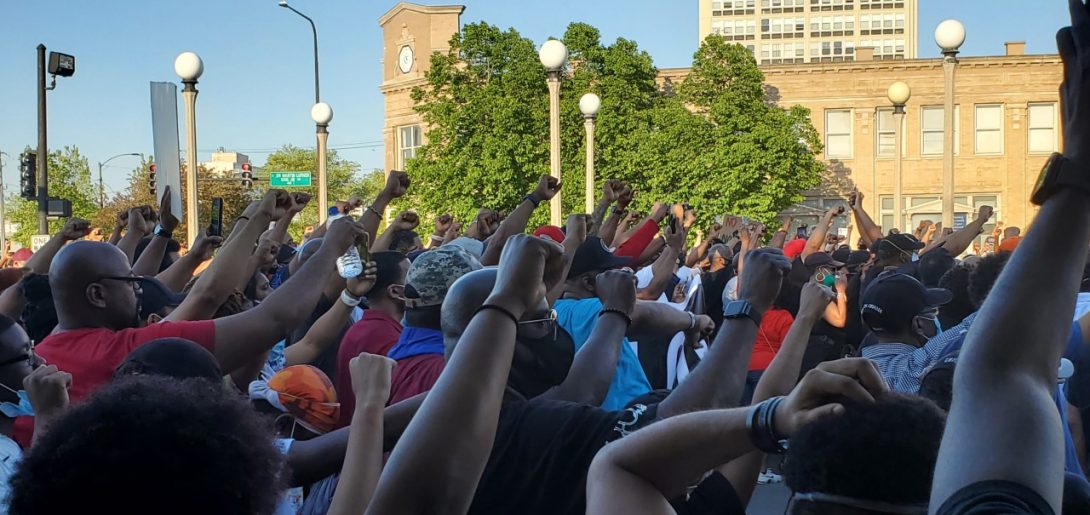Diversifying Nursing
Phoenix Matthews strives to build a nursing workforce that reflects the populations it serves.
Part 1 Heading link

UIC College of Nursing already has one of the most diverse student populations in the country with high numbers of international, Latinx and Asian students enrolled. But with about 11% African American or Black students, the student body falls short of Chicago’s general population, of which 30% are African American or Black. As the college’s inaugural associate dean for equity and inclusion, Phoenix Matthews, PhD, plans to close that gap and help end systemic racism in health care settings by training a workforce that mirrors the populations it serves.
Matthews’s appointment began in January 2020. Since then, they have offered virtual training opportunities across the College of Nursing’s six sites. These sessions, consistent across the board, help faculty recognize the indirect, subtle and sometimes unintentional instances of discrimination that creep into every day interactions and how to respond to students’ feelings in the classroom.
In addition to training existing faculty, Matthews plans to advocate for the hire of new faculty from diverse backgrounds and to do that in clusters to help them build relationships and feel satisfied in their work environment. According to Matthews, this is key to retaining talented, diverse faculty who will be able to mentor students.
Matthews Quote Heading link
A lot of social justice work focuses on individual behavior. But the real gate keepers for social justice are larger: police, public health policy, corrections and sentencing guidelines.
Part 2 Heading link

“It is vitally important to have diverse faculty in place,” says Matthews, noting that some students of color struggle in programs where they are not represented among the faculty.
Alysha Hart PhD ’20 was one such student. “There was (and still is) a small number of Black faculty at the doctoral level, which had implications,” says Hart. “I didn’t always feel like I belonged, and I didn’t always feel safe.”
Hart considered dropping out before finding her mentor, Gloria Bonner BSN ’70, MSN ’75, PhD ’96 who invited her to work on a study she was leading. Next, Hart joined a writing group led by Matthews where she sharpened her skills alongside other students from underrepresented groups. Hart achieved her PhD and now works as a postdoctoral research associate under Matthews and serves as a mentor for other nursing students. She has also become an activist for social justice by co-founding Black Nurses Matter, a nonprofit dedicated to fighting health disparities among Black communities.
“A lot of social justice work focuses on individual behavior. But the real gate keepers for social justice are larger: police, public health policy, corrections and sentencing guidelines,” says Matthews. In their new role, they will chip away at that structural violence by changing the face of who provides instruction, conducts research and cares for the health of our communities.